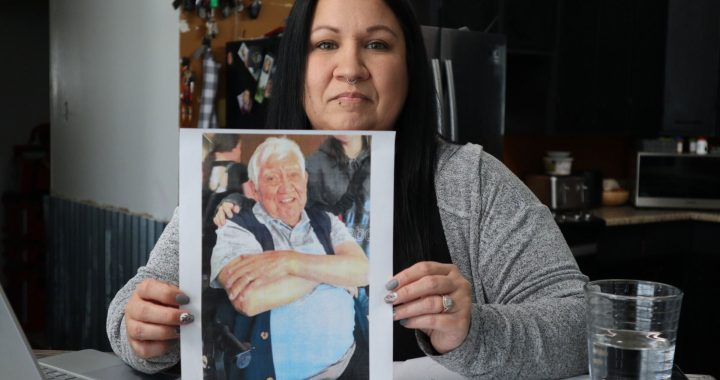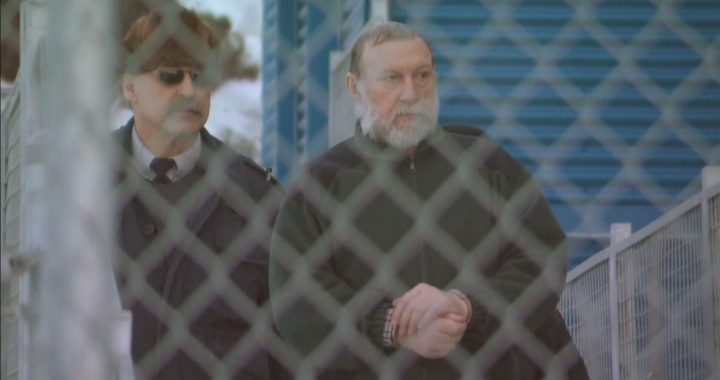By Jorge Barrera
APTN National News
The lawyer for a First Nations children’s advocate plans to ask the Canadian Human Rights Tribunal to order the federal government to cease surveillance on his client.
Lawyer Paul Champ says the ongoing surveillance amounts to “intimidating behavior towards” a party involved in litigation against the federal government.
Champ will be seeking an order from the tribunal prohibiting federal government officials from monitoring Cindy Blackstock’s Facebook page or appearing at her public speaking engagements without prior notification.
Despite requests from Champ, Ottawa has refused to stop the surveillance.
The tribunal is currently hearing a complaint launched by Blackstock and her First Nations Child and Family Caring Society organization against Ottawa over its alleged discrimination of First Nations children through underfunding child welfare services on reserves. The Assembly of First Nations is also part of the complaint.
This past May, the Office of the Privacy Commissioner found that Aboriginal Affairs and Justice Canada officials collected personal information on Blackstock that was “unrelated to their ordinary operating practices.” In a report, the commissioner found that officials in both departments “repeatedly accessed, viewed, read, copied and recorded personal information” from Blackstock’s personal Facebook page.
The privacy investigation found that officials took “multiple screen shots” of Blackstock’s Facebook page along with excerpts. There was no evidence, however, that any federal officials tried to “friend” Blackstock to obtain information.
The privacy watchdog told both departments to destroy any personal information “to the extent permitted by law” about Blackstock and any other individual officials gathered in the course of their snooping.
It also recommended that department officials “cease and desist from accessing and viewing personal information posted to (Blackstock’s) personal Facebook page.”
The spying activity also formed part of Blackstock’s complaint against Ottawa. Following hearings on the issue in August, Champ asked the federal government to provide an undertaking they would no longer visit Blackstock’s Facebook page “by subterfuge or otherwise,” according to an Aug. 21 letter to Justice Canada.
Justice Canada, however, did not reply to the request until Champ sent a second letter on Sept. 5 advising the department that he would be raising the issue with the tribunal.
Justice Canada lawyer Ainslie Harvey responded in a Sept. 10 letter saying the government would not provide any such undertaking.
“The undertaking requested is too broad to be enforced; a Facebook page that uses public settings is accessible to anyone, government employee or not,” wrote Harvey. “It is entirely appropriate for parties engaged in litigation to find out information about each other, including accessing a public Facebook page of the parties to the lawsuit.”
Harvey wrote that Blackstock had posted confidential material relating to the lawsuit on a page that was open to the public. Harvey said the Privacy Commissioner’s report also noted that “courts have held that a party initiating litigation provides implied to consent to a certain amount of probing of their private affairs for the proper determination of the litigation.”
The federal government has said monitoring social media is part of its normal operations.
Blackstock said she doesn’t know how federal officials ever accessed her personal Facebook page because she’s set her privacy settings at the highest level “for years.”
The tribunal adjourned hearings Thursday and will resume on Sept. 23 and Champ is expected to raise the issue at that time.
@JorgeBarrera











The Harper Government has violated protocols and procedures time and time again. Currently conduct and over spending is being reviewed (ie: Senate expenses, Duffy, Brazeau. Wallen etc.) Meanwhile tax dollars are being spent to spy on concerned individuals advocating for children? This is shameful. It is a disgrace to democracy. I view the distorted machinations of our government to be a greater national security risk than the conduct of the public. The paranoia of this bureaucracy is self evident.